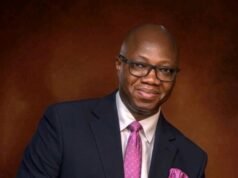“Destinies are guarded by codes, kingdoms are secured by secrets and thrones are preserved by mysteries ”
The above analogy will serve the body of my writings as background and springboard for more discourse on the subject matter.
I will be referring to the above analogy throughout this piece. Perhaps I should also crave the indulgence of my reader to drop the toga of academic writing as my intention is to get the message across without the scent of conceptualization.
That my keywords: tradition, modernity and custodian are familiar lexicons, I will excuse myself from further conceptualization but a working explanation will be provided.
Traditional institutions are unarguably one of the oldest and most conservative institutions humans ever parade . It has evolved through ages from the classical age to renaissance and the modern times.
The institution at another level is divinely sanctioned and endorsed. From the great Roman empire, to Egyptian epistemology, to the Malian empire in the heart of Timbuktu, to the Greek empire and their pantheons of gods/mythologies, to the profoundly acknowledged Oyo empire. What stood out was the unique placement and the acknowledgement of traditional institutions as the drivers of people’s spirituality, hopes, as well as their aspirations. They are the single most visible, undisputable and culturally symbolic entity that readily provides assured leadership plus companionship.
The traditional institutions have been an acceptable political compass for their people. The fact that these thrones and empires are fortified by a body of mysteries and secrets makes their aura invisible, feared, respected and ultimately eternal.
However, the primitive understanding of these stools have been threatened, checked and in some instances clipped. In Nigeria , the first attempted onslaught against traditional institutions were the forces led by colonial masters. Readily, the stories of King Jaja of Opobo, Nana of Itsekiri, Oferanmi of Binin and the Kosokos in Lagos served us well.
What then is the Crux of my presentation, my concern is to critique the implications of the “custodians” handling of this vicious cultural element and symbol of unity in the age of vampires, greed and arrogance.
Firstly, by custodian, I am looking at two things. The immediate family of the various traditional titles holders and the various governments who by their various legislation have brought the system under tight control even checks.
Destiny can preferred one to occupy the throne yet understanding the secrets and the mysteries are increasingly a big challenge for the occupier (custodian) in recent times.
The challenge naturally is partly due to unwholesome influences in nomination, selection and coronation processes or largely a brutal attack spearheaded by political class and agents of modernisation.
Citing Oyo empire example, we have witnessed the subjugation of age long sacred practices in the hands of the family of title holders. Candidates cutting corners to mount the stools and flagrant subversion of due process to aid misfits. The result is always fatal. Paraphrasing the Italian political thinker, Niccolo Machiavelli, his contention is clear on hereditary principality. It was his eternal views that such princes must stick to the norms, tradition and the secret of the throne.
The bedlam insinuated above has led to the production of “untraditional traditional rulers”. It has also created gaps in traditional culture and expected royal candour. Kings that can’t invoke spirituality, weak, and unprotected are the order of the day. It is now so bad that all accruable sacredness is gone and flattened.
On the other hand, the agents of modernisation ably represented by political class have done so much damage. The traditional institution has been checked, regulated and convincingly decapitated. At best, what is on Parade now is a regulated or constitutional monarchy.
In the defunct western region of Nigeria, between 1957-59 , arrangements were perfected and all notable traditional titles were captured under the famous “1959 Chieftaincy declaration” . It is the legal instrument that spells out the identity of the ruling houses, eligibility to the throne and the procedure for filling vacancies.
Further to the above is the establishment of Chiefs law at a later time by various states. The law at best can be described as the written code of conduct for traditional rulers, the one being employed by political class to appoint, remote, and ultimately sanction “erring” traditional rulers.
It is so draconian such that traditional rulers have to look up to the Local government chairman for peanut and upkeep. The pettiness in the law is further reinforced when you look at a situation where the Oba cannot travel outside his enclave without the permission of the chairman.
It is the same instrument that agents modernisation use in banishing, sanctioning and utterly degrade any royals.
Perhaps I should say in Oyo State where we ought to be beacons of cultural civilisation and renewal, the governor is empowered by law to create “Kings without kingdoms”. Is that not an aberration?
Political classes are always up to settle scores with traditional institutions and willing to reward any royals with uncultured promotion and reference.
Conclusively, we are in a perilous time. The clash of civilisation and principalities is real. Critical stakeholders cannot afford to keep quiet and we must do eternal good to our common patrimony.
This struggle will not be easy and it will come at a cost to individuals who spearhead the same but I must not fail to acknowledge it will be worth it.
The royals themselves must take the bull by the horn. An enlarged meeting is required where these issues are raised and discussed. At least we must find a way out of this threat of extinction and irrelevance.




































